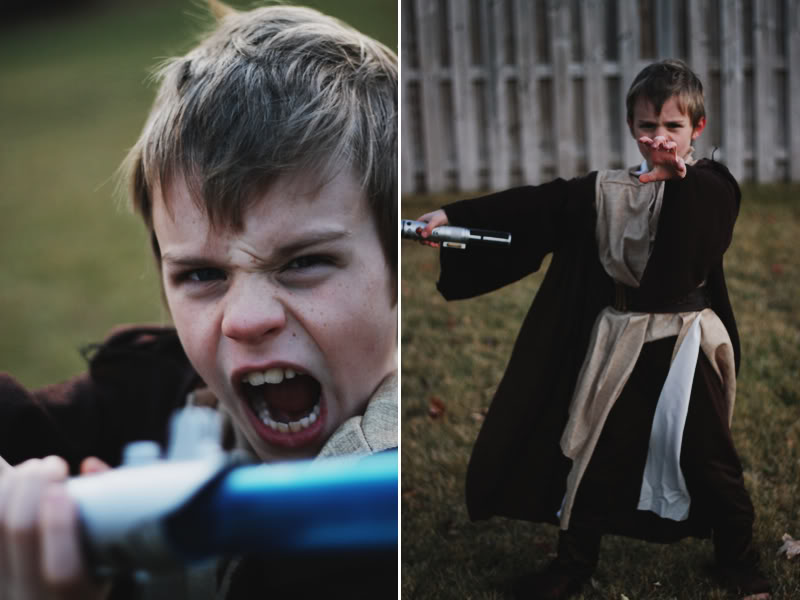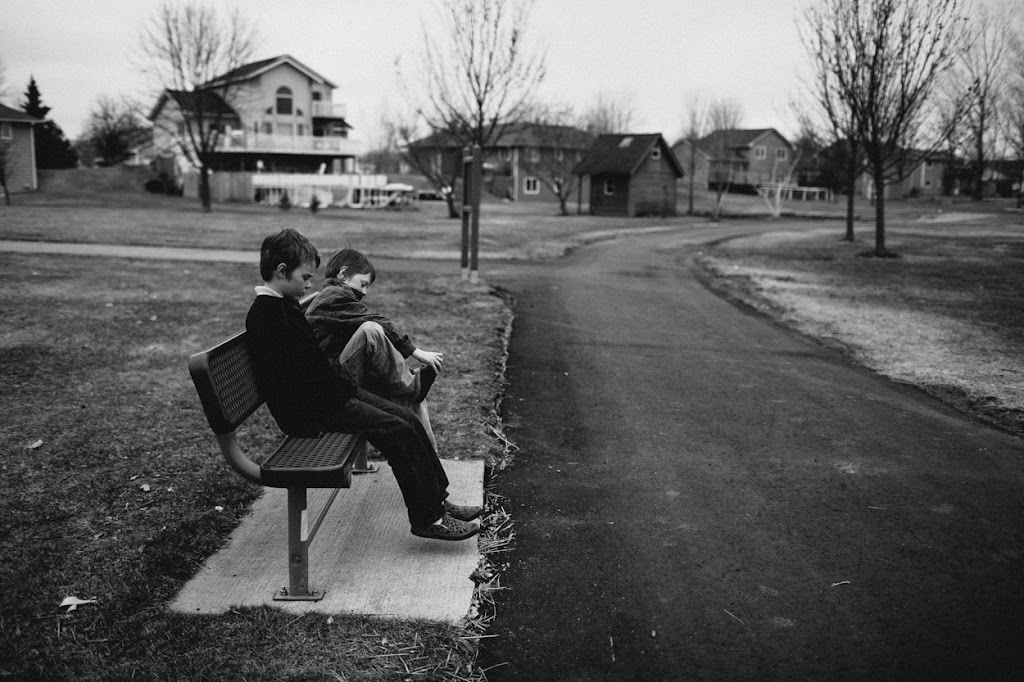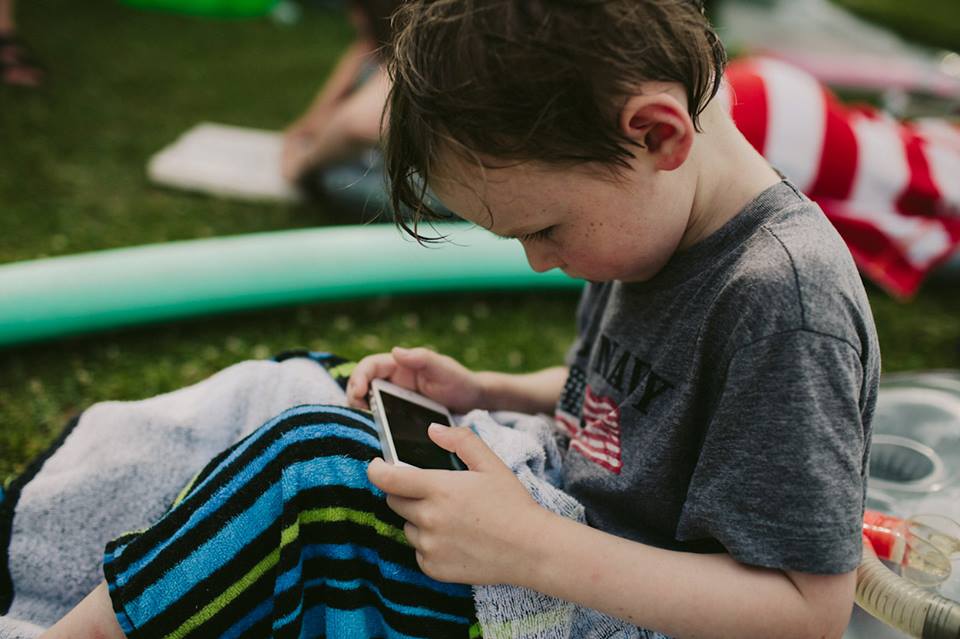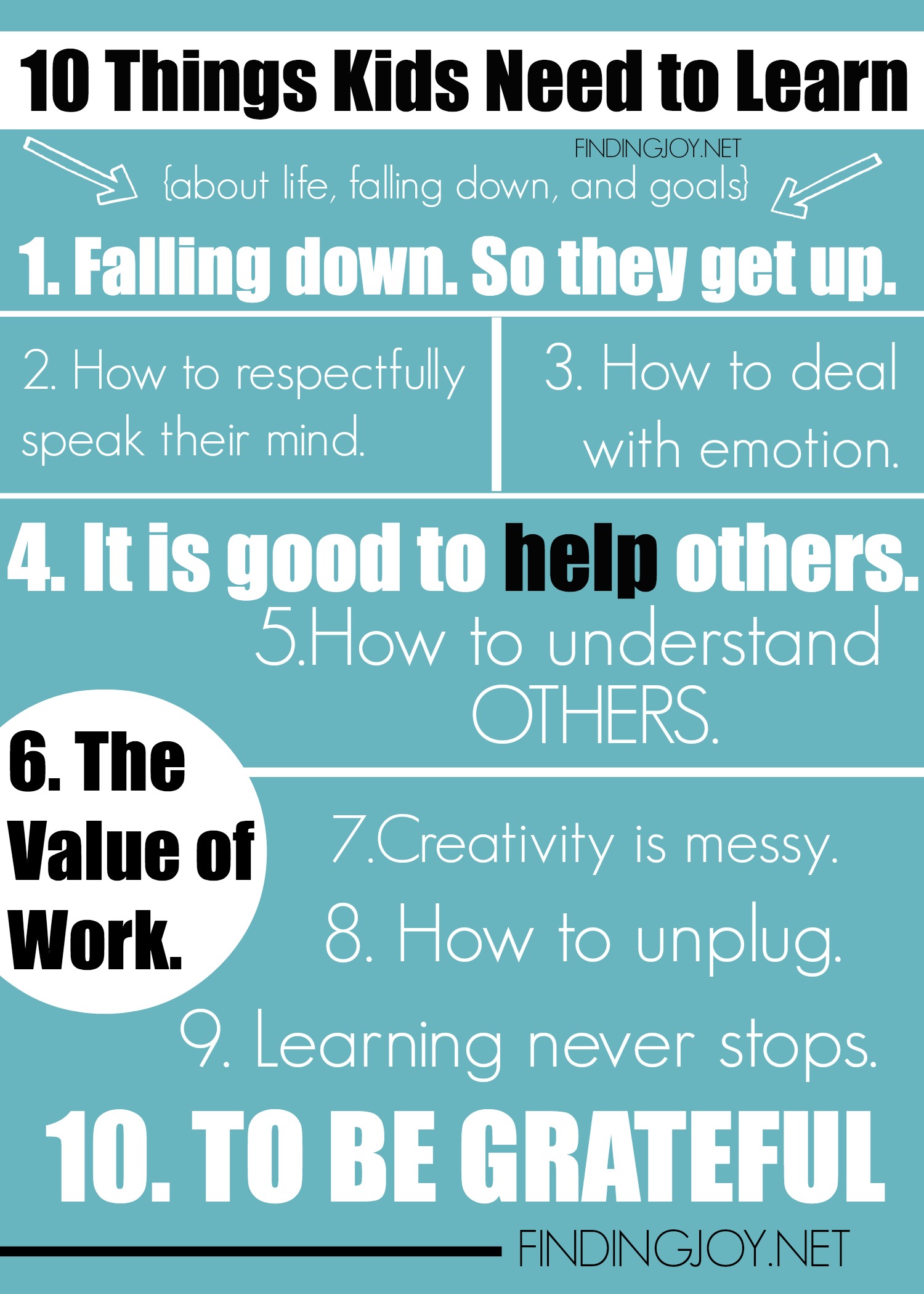
1. Falling down. So that they learn to get up. Sometimes I think this is one of the toughest lessons in parenting. Do you know that I’ve learned more about life, about determination, and about forgiveness and grace in the moments where I messed up, fell down, or things didn’t go how I had planned? I remember being in highschool and having this impromptu party at my parents house when they were out of town. Which resulted in a hole punched in the ceiling and wall and a car accident in the driveway. When I called my dad at 1am and told him it was one of those worst feeling moments ever. But, I learned. I learned that I was never doing that again. I learned about grace. And how to fix holes in the walls and ceiling. When my kids mess up I still love them. When they fall off their bike as their learning to pedal I’m the one cheering them on. My dad? After that horrible night? He was in the stands the next night cheering me on as I played basketball. Was there some serious consequences? You better believe it. But beyond that, he believed in me. That’s what we get to do for our kids. We are their cheerleaders. Their coaches. The enforcers. Falling down is only bad if we stay there or let them stay there.
2. How to respectfully speak their mind. For so many years I lived behind the I’m fine answer for everything. People would ask where we’d want to go and eat and I’d respond I don’t care. I don’t want my kids to live with an I don’t care posture to their hearts. Are there things that don’t matter? You better believe it. I tell them when you go in a meeting someday and you have a list of ten things you want to talk about choose your top two and maybe talk about both. There’s a beauty in compromise. But, there is also a place, a freedom, and a need for us to speak our minds. Speaking one’s mind respectfully leads to confidence, boldness, and changers in this world. Otherwise you’re often left with a room full of adults who want to go out to dinner but no one states where they want to go. I don’t care is great for some things, but there has to become a place where decisions are made. When we articulate emotion, desires, convictions, then we are not sitting in passivity but are instead becoming people of action.
3. How to deal with emotion. My goodness. I need to learn this too. Here’s the deal – we’re not our emotions. I know, I’ve written it before, but it simply needs to be said again. When we are angry we’re experiencing anger – we’re not anger. Same with frustration, overwhelm, happiness, etc… so kids need to be taught to recognize that they’re experiencing an emotion and then learn how to manage it. It’s the whole analogy with being the thermostat versus the thermometer. The thermometer reflects the mood in the home while the thermostat regulates it. Life is fully of frustrating moments – sitting in frustration, in fact, allows time to waste away. Understanding frustration, looking for goals, and moving forward is not allowing the frustration to define. That being said, I also want my kids to experience emotion and embrace it – no living an I’m fine life. It’s a balance truly.
4. That it’s good to help others. From holding the door open to saying thank you to the cashier at the grocery store to volunteering to giving money back and on and on. Our kids need to be able to see the world behind the self sphere. It’s good to experience and see the world through different lenses. It’s a powerful thing to raise a generation of empathetic, caring, and giving children. This doesn’t mean being a doormat. In fact, it’s the exact opposite. This is creating a culture that does not simply drive in the garage, shut the door, and remove themselves. It’s a culture that sits on the front porch, that cares for others, and is willing to give to others because we genuinely care. It’s those moments spent sitting with others not expecting anything in return, but just rather being there, caring, and letting them know that you value them.
5. How to understand others. I’m the worst at this sometimes. I will talk and talk and talk to try to get my point of view across. This is the counterpart to expressing one’s opinion. And, in fact, I would argue that before one’s opinion is expressed that we take time to understand other’s point of view. That, my friends, is challenging. Teaching kids to understand others can be a challenge. But oftentimes they teach me that skill. They see others for who they are – they don’t get as stuck in labels – and it’s refreshing. We live in a world of judging, of labeling, and not seeking to understand. Imagine the power in a generation of youth who have learned to respect others who have differing opinions then their own and don’t feel the need to power over and dogmatic. It’s refreshing, it’s a breath, and it’s opportunity. [Tweet “Don’t get stuck in labels. There is freedom in understanding.”]
6. Learn the value of work. This. And this again. And again. One of the important life skills that I really believe kids need to learn is how to be proactive and simply see the work that needs to be done versus being having to told to do something. Many years ago I used to work for Pier 1 Imports as a visual merchandiser. I would interview individuals for the morning work and I’d consistently be trying to understand if they were a person who needed constant direction or a person that could see the ultimate goal and would not wait for work but would simply figure out what to do next. This is learning the value of work. Work creates opportunity which creates freedom. Is it easier at times for me to simply clean their room? You better believe it. But, if I constantly swoop in, clean up their messes, and not let them feel the weight of not being a steward of their space then I am in fact, not teaching them to work. So we have many times where we work. Will I help them? Yes. Absolutely. I will work side by side with them and we’ll get the task done. Oh yeah, and before you think I’m perfect with this let me quickly let you know that there are still times where I go in, declutter, get rid of things, and just clean up. I’m real. And there’s always a tipping point.
7. How to unplug. When my oldest was born I never would have typed those three words. I remember teaching her how to use a mouse on the computer when she was three. Flash forward to the years with my now four and half year old, Samuel (don’t forget that half) and the incredible digital skill that he possesses. I never once taught him how to use my phone, or the ipod, the Nintendo DS, the wii remotes, or any of it. He just observed, learned, and knew how to operate them. And it’s so easy for me as a parent to rely on those digital wonders to entertain them. Now, don’t get me wrong, I love the digital age and you will never find me banning electronics, the web, or any of it in my house. I think our kids need to learn how to use digital media – responsibly. But, they also need to learn the skill of unplugging – just like I do. So cultivate times of quiet. And that, again for me, comes from leading by example. Putting the phone away, not instagramming, and learning to just be still in a very very noisy digital world.
8. Creativity is often messy. And that’s okay. Creativity often involves mixing up the toys that I’ve worked so hard to sort into clever labeled boxes. Creativity involves thinking out of the box and exploring options and looking at the world through eyes that see possibility. So let them run. Jump in the puddles. Dump out all those boxes (as long as they help you put it all together). Paint. Create. So many times I have to bite my tongue and just let things go – because deep down I know that this world needs more people that are willing to take chances, to embrace creativity, and to simply try to explore and make connections between things that are often not thought to be connected.
9. Learning Never Stops. And that just because you don’t know something it doesn’t make you not smart. My kids are mini perfectionists like me. Sometimes I watch them get frustrated because they don’t know something – math, science, a spelling rule, and instead of learning they quickly try to define themselves as not smart. I will tell them just because you don’t know something doesn’t make you not smart. It simply means you don’t know it. Yet. Learning should never end. As soon as we think we know all the answers then we are, in fact, cutting ourselves off from opportunity. And remember opportunity gives us freedom. So encourage learning. Reading. Understanding other viewpoints. Seeing the world through different lenses. Creativity. Learning should never stop. In fact, I hope that when I’m an old grandma sitting on my front porch that I’m still learning – reading, listening, and wondering about life and others.
10. Be grateful. Of everything this is a skill that I truly believe is a life skill gift. Gratitude is not something that we’re born with – gratitude is something that needs to be taught, cultivated, and nurtured. It’s really about living a life that sees the glass half full versus half empty. Which is so hard sometimes. Okay, many times. But, kids are often really good at reminding us as adults to be grateful as well. When we model gratitude for our kids we are blessing them with the understanding that life is finite. Today is finite. We have this moment, this time, and even in this finite, yet moving river of time, there are moments that are simply gifts. They are the hugs in the morning, the I love you’s, and in my world the fact that the snow is finally melting. Work to cultivate gratitude in your own heart but as well in the hearts of your child. A simple what was your favorite part of today? question gets them thinking out of the box and looking for good. And you know what? They will teach us to be more grateful – for the moments, the times hand in hand, and for the little things in life. It’s a dual blessing.
Ten things kids need to learn. Out of hundreds.

If you want to be involved in an authentic community of moms that value being real join the Finding Joy community on Facebook with over 110k other moms -> FINDINGJOY FACEBOOK





5 comments
This is a great post! I love all of them, especially number 7 — how to unplug. So I’m getting off the computer right NOW. 🙂
Yes, you and me with the unplugging part.
blessings!
Rachel
This is a great post. Not only can this list apply to my girls, it can also apply to me. There is always something us adults need to learn as well. 🙂
I really like this. Sharing on my social media, hope that’s OK. 🙂
Yes, yes, yes — that’s great! Thank you for sharing Hilary. I appreciate it greatly.
Rachel